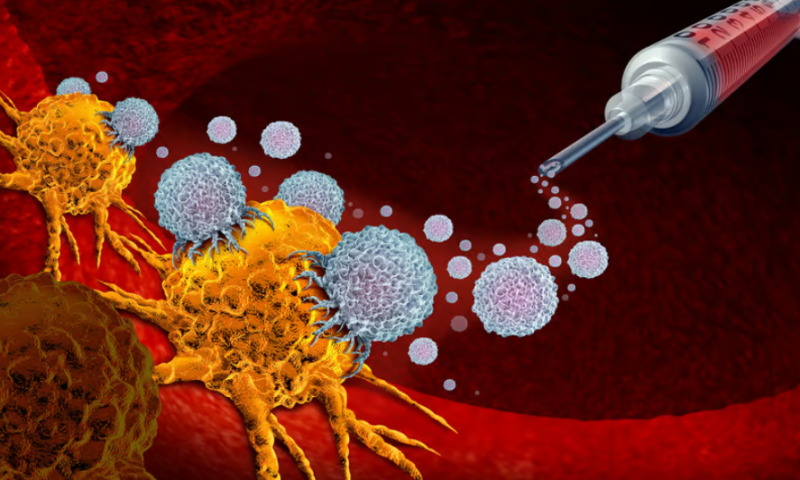Slowing disease progression is the holy grail of many drug developers, but it can mess with a company’s timelines when encountered unexpectedly. That’s the case for Ultimovacs, which has pushed back a planned phase 2 readout for its so-called cancer vaccine into the second half of the year after not enough patients in the trial saw their melanoma develop.
The vaccine, dubbed UV1, is being assessed in combination with Bristol Myers Squibb’s Yervoy and Opdivo as a first-line treatment for patients with malignant melanoma. Enrollment was completed successfully with 156 patients signed up by June 2022—split between those receiving the full combination treatment and those receiving Yervoy and Opdivo only.
Top-line progression-free survival results will be revealed when cancer progression or death has been confirmed in 70 patients. Based on historical data for Yervoy and Opdivo, Ultimovacs had been assuming that it would reach this milestone in the first half of the year.
However, the latest update from the trial shows that “it is taking longer than anticipated to observe the required number of patients showing progression,” the company said in a release April 25. As a result, the readout will not take place until the second half of the year.
“We are encouraged that disease progression in the INITIUM trial is slower than anticipated when compared with historical data,” Ultimovacs CEO Carlos de Sousa said in the release. “This is positive for patients, though we do not know if UV1-related efficacy is responsible for this extended time to expected readout since both Ultimovacs and the investigators remain blinded. We look forward to learning to what degree UV1 may have contributed to the clinical outcome for patients.”
UV1 is designed to target human telomerase (hTERT), an antigen that the Norwegian company says is present in 85% to 90% of cancers in all stages of tumor growth. Alongside INITIUM, the biotech is investigating UV1 in four other phase 2 trials in oncology indications ranging from head and neck to ovarian cancers.
Hype has been building around various so-called cancer vaccines in recent months, with a combination of Merck & Co. and Moderna’s mRNA cancer vaccine and Keytruda slashing the risk of tumor recurrence or death by 44% compared with Keytruda alone when used as an adjuvant therapy in stage 3/4 melanoma back in December.

